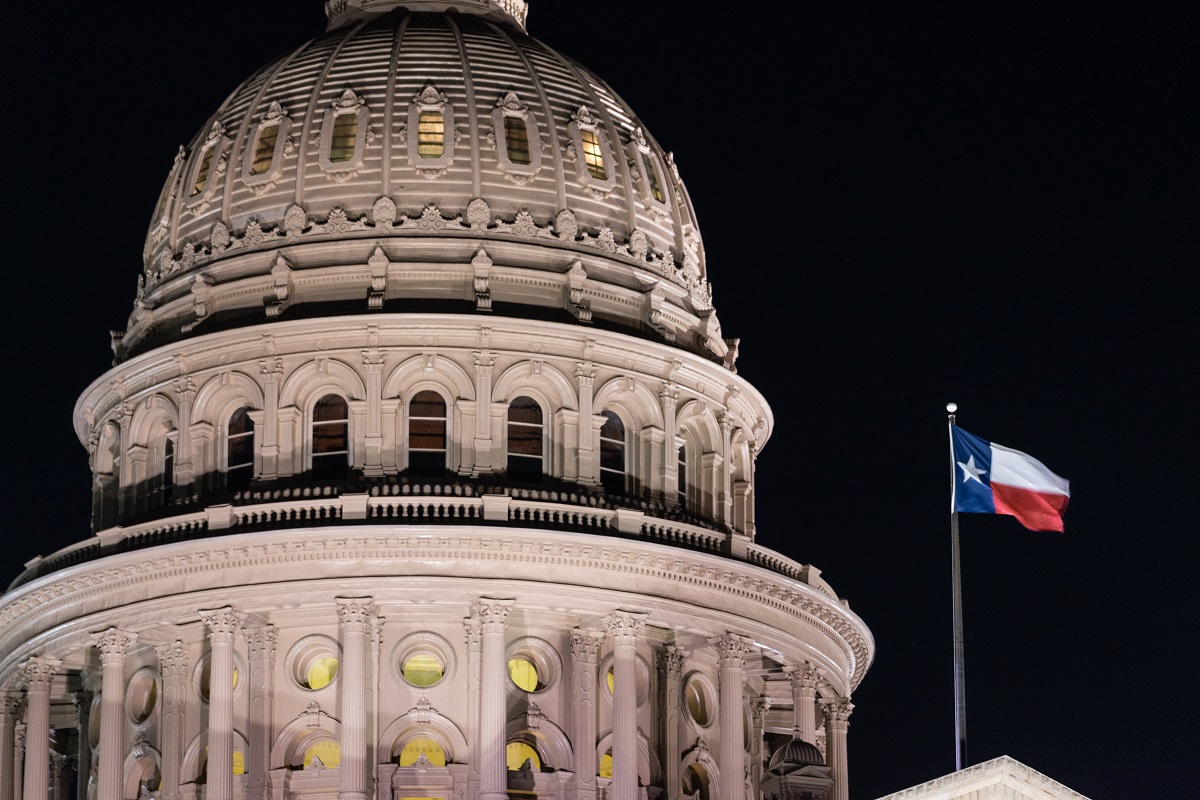
Two Texas Democratic primary candidates are in the race to unseat anti-marijuana U.S. Senator John Cornyn (R-TX) this November. In a heated debate some time back, the two candidates discussed their support for cannabis legalization and the reform of justice policies.
Royce West, one of the candidates who is also a state senator, discussed a legalization bill that he filed last year. He stated that there are two racial disparities in the enforcement of prohibition, resulting in mass incarceration. West is supportive of cannabis legal reform in Texas, and in the legalization of medical marijuana, expanding qualifying health conditions.
“About the overpopulating of jails, most of the inmates end up being African American males,” he said. “We’ve got to make certain that those little drug offenses, possession, are not in—those persons don’t end up going to jail or the penitentiary so we can keep our jails available for the hardened criminals.”
This statement was seconded by MJ Hegar, a military veteran who further said that the current ban on cannabis was only profitable for the drug cartels.
“I am absolutely for legalizing marijuana. I think we should be expunging the records of those who have been incarcerated for such. And I think that we have a mass incarceration problem, not just in marijuana but in the world,” she said. “I mean, we are one of the top incarcerated countries in the world, and that’s not something that I’m very proud of…”
While other states have been moving toward decriminalization of marijuana charges, Texas ranked #1 in cannabis arrests in 2018. In 2016, 98% of drug arrests were for personal use amounts in Texas. The current penalty for marijuana possession < 2 ounces in Texas is up to 180 days in jail and a $2,000 fine (plus legal expenses).
One of the criticisms about any state with a privatized prison system is that it statistically correlates with higher-than-average incarceration rates. Coincidence? The War on Drugs dramatically increased the number of drug arrests, which overwhelmed state-run jails and prisons. Then privatization became an option in some states.
With the profit-for-imprisonment model, arrest rates have continued to keep prisons at maximum capacity. According to The Sentencing Project, 1 in 12 Americans were incarcerated in a private prison in 2016. An increase of 47% since the year 2000.
As of June 2020, America is still the world leader when it comes to incarceration rates. According to data from Statistica, there are 2, 121,600 Americans currently serving time. The number two spot for incarceration rates is China, with an inmate population of 1,710,000. Number three on the list is Brazil, with 773,151 imprisoned citizens.
Of the G20 Nations, only Argentina, Brazil, the United States, Russia, India, Mexico, and Turkey make the top 20 list of highest global incarceration rates.
The two candidates competed in a July 14 runoff after a heated Democratic primary election back in March. What should happen to the low-level cannabis offenses if the herb is legalized?
“If there were not violent circumstances in addition—I don’t think that we should be releasing violent prisoners early—but I do think that if marijuana was a complicating factor in their sentencing then, yes, we should be looking at this as a systemic reform,” Hegar said.
West said, “if that’s the only offense they’re in jail for, yes, they should be set free.”
“The reality is their records should be expunged. I led the expunction effort here in the state of Texas,” he said. “Also sealing the records. We should do that because we know what the impact of having a record is—a can’t get a job, they can’t get an apartment. Those issues normally follow them, so we need to expunge it, let them out, expunge it, and then help them to be able to become a functional citizen.”
Finally, the moderator asked the pair to raise their hands if they’ve used cannabis. Both did, but none wanted to talk about it, with West terming it as a “youthful indiscretion.” Who could forget President Clinton’s statement that he tried it but “did not inhale” when he was introduced to cannabis in college?
Both candidates are trailing Cornyn, according to April polls. In case either of them wins, then there will be high chances of comprehensive reforms in a Senate that has shied away from endorsing cannabis legislation.
Is Texas ready for a more inclusive medical marijuana program? The November 2020 ballot results will provide the answer.
No Information on MarijuanaDoctors.Com should be used to diagnose, treat, prevent or cure any disease or condition. You can view our Full Disclaimer here.